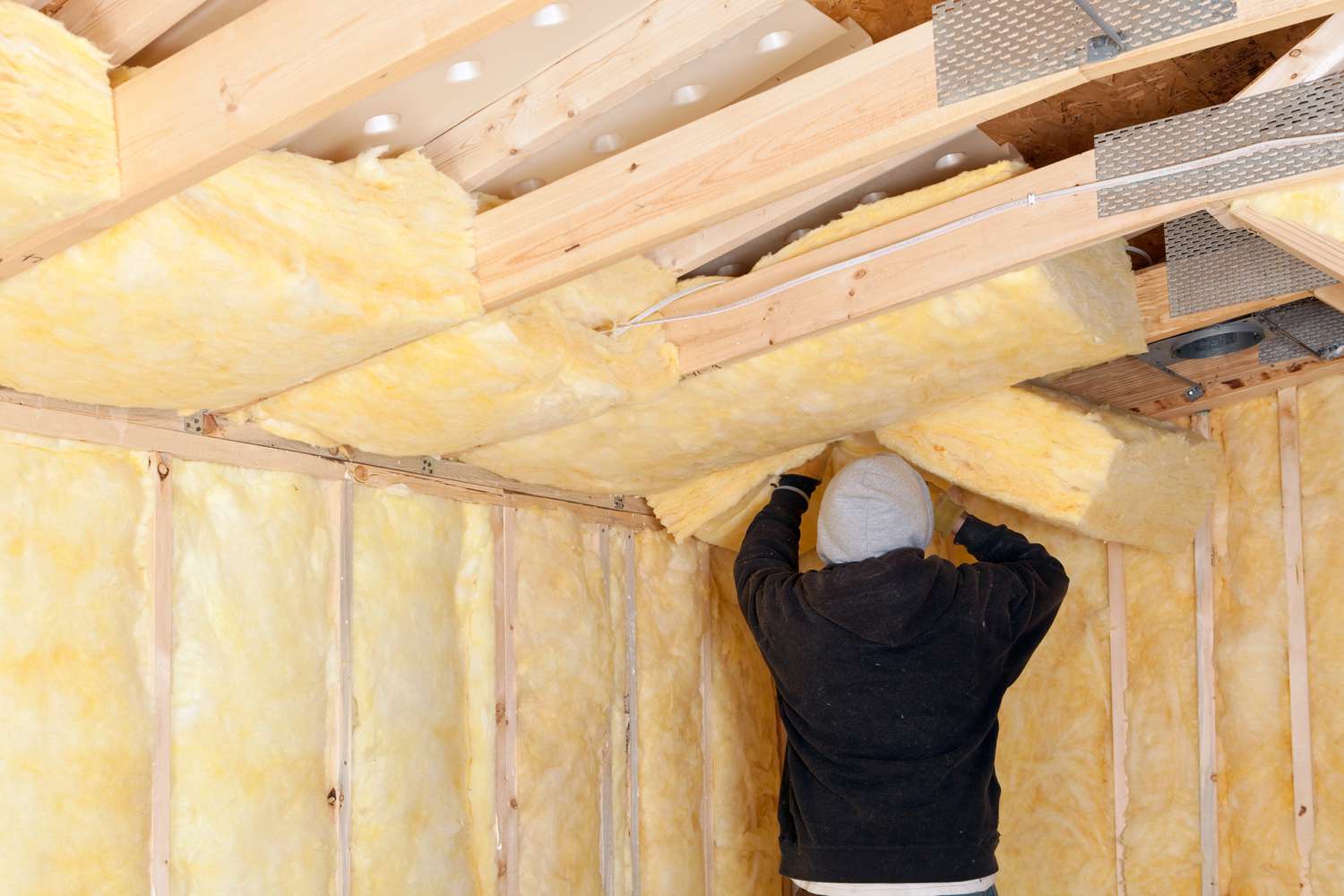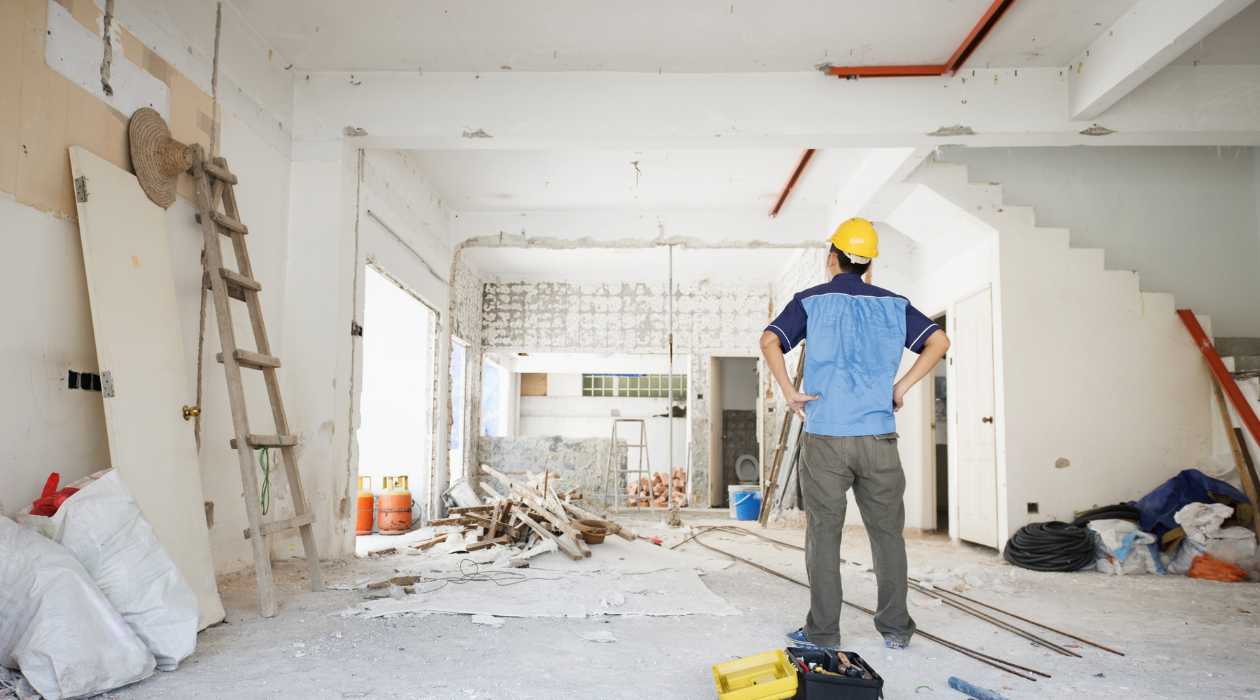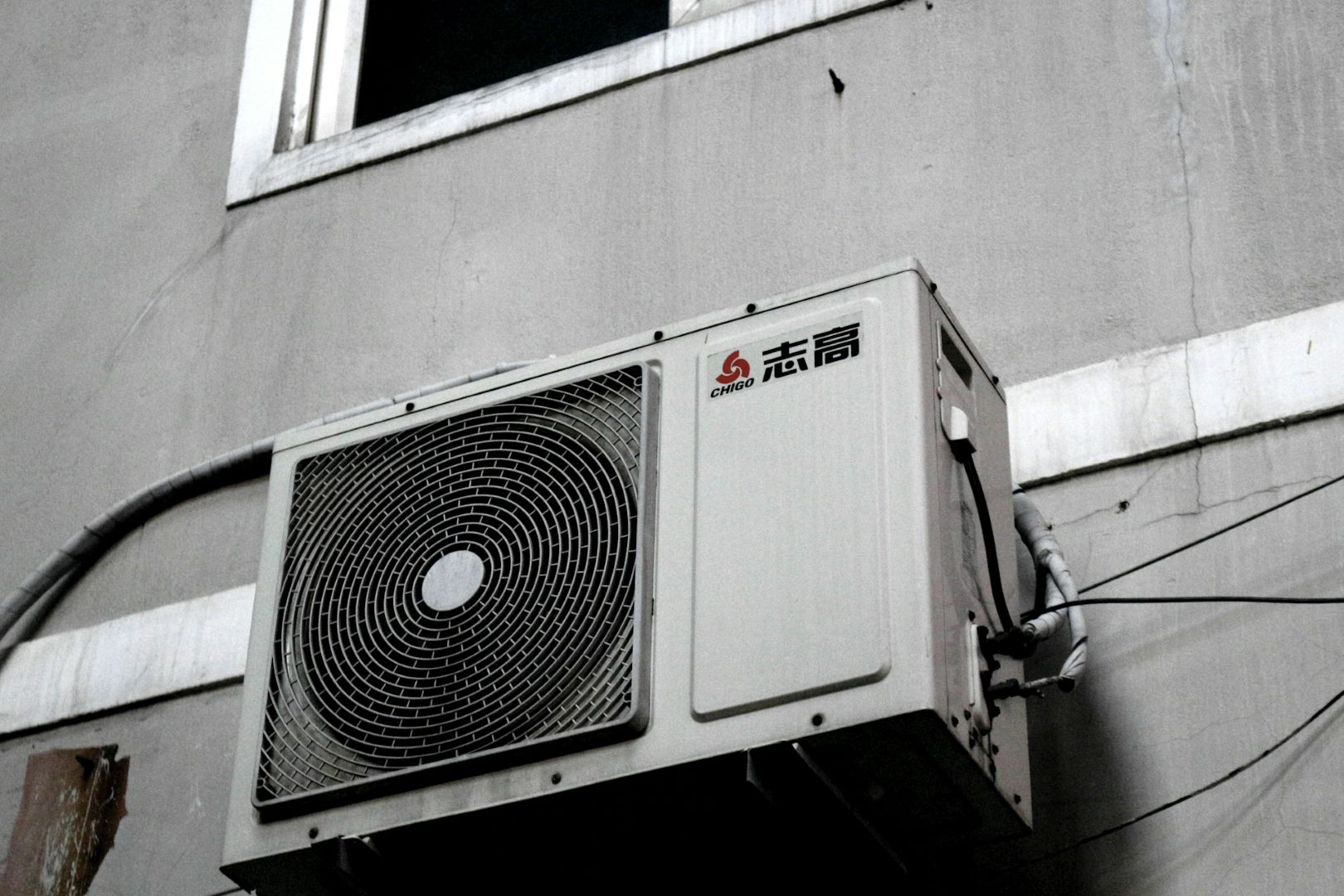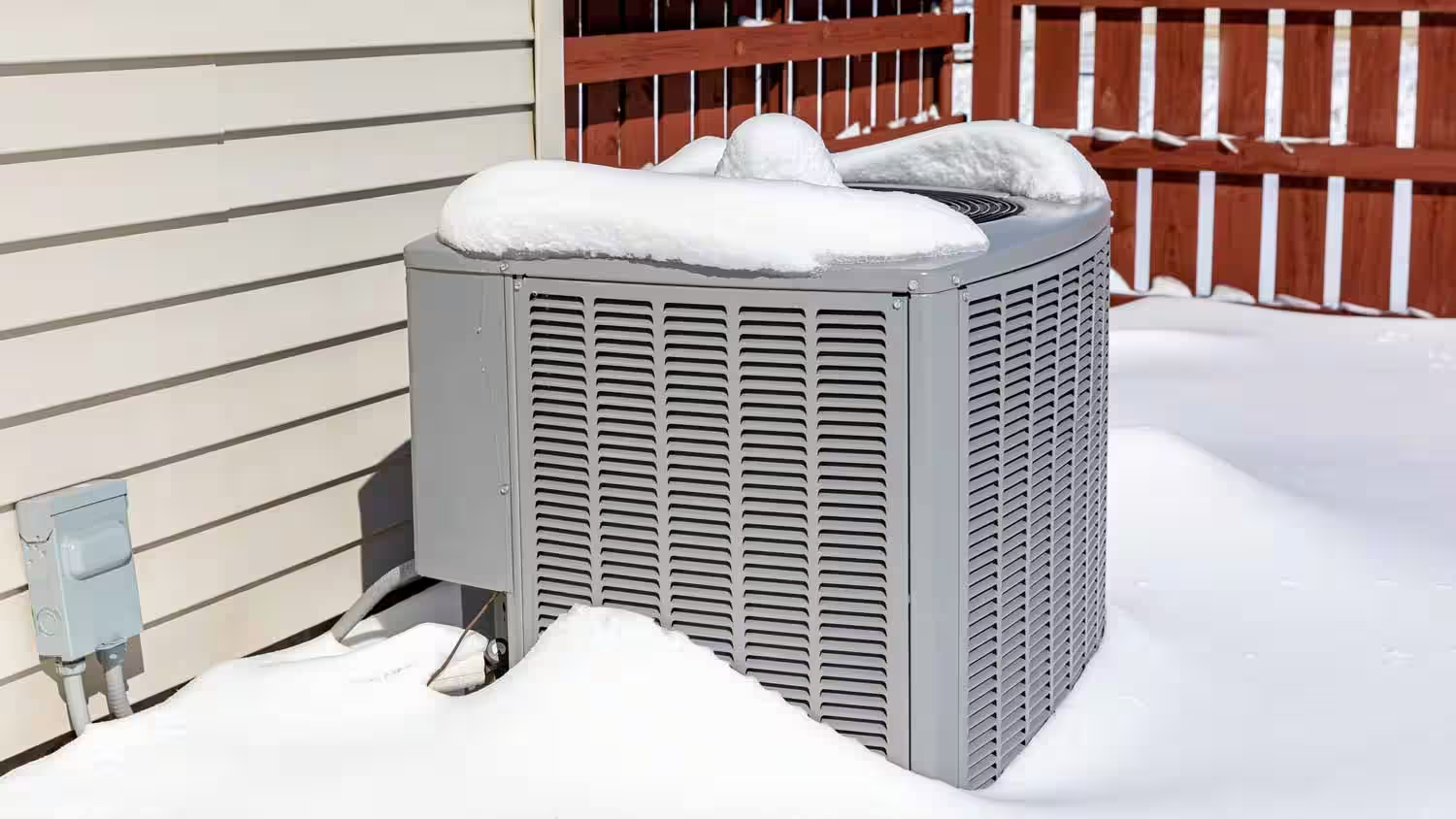Home>Home Maintenance>How Long Does A Home Inspection Take In Texas


Home Maintenance
How Long Does A Home Inspection Take In Texas
Modified: March 6, 2024
Find out how long a home inspection takes in Texas and get insights on the importance of home maintenance. Discover expert advice on home-maintenance strategies to ensure your property's longevity.
(Many of the links in this article redirect to a specific reviewed product. Your purchase of these products through affiliate links helps to generate commission for Storables.com, at no extra cost. Learn more)
Introduction
Welcome to the world of home maintenance! As a homeowner, it’s essential to understand and address the various aspects of maintaining your property to ensure its longevity and value. One crucial step in this process is the home inspection. Whether you’re buying or selling a home, having a thorough inspection is vital to uncover any underlying issues and make informed decisions. However, one question that often arises is how long a home inspection takes in Texas.
The duration of a home inspection can vary depending on several factors, such as the size and complexity of the property, the experience and thoroughness of the inspector, and any additional services that may be included. Understanding these factors can help you better prepare for the inspection process and allocate the necessary time.
In this article, we will delve into the factors that influence the duration of a home inspection, provide insight into the typical duration of home inspections in Texas, emphasize the importance of allocating sufficient time for inspections, and offer tips for homeowners to prepare effectively.
So, let’s jump right in and explore the fascinating world of home inspections!
Key Takeaways:
- Home inspections in Texas typically last 2-4 hours, but larger or older homes may take longer. Rushing through can lead to missed issues, so it’s important to allocate enough time for a thorough inspection.
- Preparing for a home inspection by cleaning, organizing, and providing easy access can streamline the process. Being present during the inspection allows for better understanding and addressing any questions.
Factors Influencing the Duration of a Home Inspection
Several factors play a significant role in determining how long a home inspection takes. Understanding these factors can help homeowners and buyers better prepare for the inspection process:
1. Size and Complexity of the Property:
The size of the property is a crucial factor in determining the inspection duration. Larger homes with extensive square footage and multiple levels typically require more time to inspect thoroughly. Additionally, the complexity of the property, such as the presence of unique architectural features or specialized systems, can contribute to the inspection’s duration.
2. Age and Condition of the Property:
The age and overall condition of the property can influence the inspection time. Older homes generally require more meticulous scrutiny, as they may have outdated or potentially faulty systems and components. Properties in poor condition or with a history of neglect may also require more time to inspect thoroughly.
3. Accessibility and Readiness:
The accessibility of various areas of the property, such as crawl spaces, attics, or roof sections, can affect the inspection’s duration. If these areas are difficult to access or require additional time-consuming measures, such as removing obstacles or arranging access through locked areas, it may prolong the inspection process.
Read more: Home Inspection: How Long Does It Take
4. Additional Services:
Some home inspections may include additional services, such as testing for radon, mold, or lead-based paint. These additional tests can impact the overall duration of the inspection, as the inspector will need to allocate time to perform these specialized services.
5. Experience and Thoroughness of the Inspector:
The experience and thoroughness of the inspector can greatly impact how long a home inspection takes. Seasoned inspectors who pay attention to detail may spend more time examining each component of the property, ensuring that nothing goes unnoticed. On the other hand, less experienced inspectors or those who rush through the process may complete the inspection quicker.
It’s important to note that while these factors influence the duration of a home inspection, the quality and thoroughness of the inspection should never be compromised for the sake of time.
Now that we’ve explored the factors that affect the duration of a home inspection, let’s move on to discussing the typical duration of home inspections in Texas.
Typical Duration of a Home Inspection in Texas
The duration of a home inspection in Texas can vary depending on the factors mentioned earlier. On average, a standard home inspection in Texas can take anywhere from two to four hours. However, please keep in mind that this is just a rough estimate, and the actual duration may differ based on the unique characteristics of each property.
For smaller homes or condos with fewer components to inspect, the inspection may be completed within the lower end of the time range, around two hours. These properties typically have fewer areas to examine, and the inspection process may be relatively straightforward.
On the other hand, larger homes or those with intricate features and multiple systems may require more time. In these cases, it is not uncommon for the inspection to exceed the four-hour mark. The inspector will need ample time to assess each component thoroughly, including electrical systems, plumbing, HVAC, roofing, foundation, and more.
It is essential to remember that the primary goal of a home inspection is to uncover any potential issues or defects that could affect the value or safety of the property. Rushing through the inspection process may result in critical problems being overlooked, leading to costly repairs down the line.
In addition to the duration of the inspection itself, homeowners and buyers should also consider the time needed for the inspector to compile their findings and generate a comprehensive report. This report typically includes detailed information about the condition of various components, any identified issues, and recommendations for repairs or further evaluation.
Allowing an appropriate amount of time for the inspector to complete their report ensures that you receive a thorough and accurate assessment of the property’s condition, enabling you to make well-informed decisions regarding your investment.
Now that we have an understanding of the typical duration of a home inspection in Texas, let’s move on to discussing the importance of allocating sufficient time for this essential process.
Importance of Allotted Time for a Home Inspection
Allotting sufficient time for a home inspection is crucial for several reasons. Let’s explore the importance of allocating the right amount of time for this essential process:
Read more: How Long Does It Take To Clean A Dryer Vent
1. Comprehensive Evaluation:
Adequate time allows the home inspector to conduct a thorough evaluation of the property. Rushing through the inspection may cause the inspector to overlook potential issues or defects that could impact the property’s value or safety. Taking the time to meticulously examine each component ensures that you receive a comprehensive assessment of the property’s condition.
2. Awareness of Hidden Problems:
A home inspection provides an opportunity to uncover hidden problems that may not be apparent to the untrained eye. Allowing enough time for the inspector to examine all areas of the property, including hard-to-reach spaces, increases the likelihood of identifying any hidden issues that may need attention.
3. Negotiation Power:
Having a detailed inspection report can provide you with valuable bargaining power. If the inspection reveals significant issues or necessary repairs, you can use this information to negotiate with the seller or request repairs before closing the deal. Allowing sufficient time for the inspection and report generation ensures that you have the necessary information to make informed decisions and negotiate effectively.
4. Future Planning:
Knowing the condition of the property allows you to anticipate and plan for future maintenance and repairs. The inspection report can serve as a roadmap, highlighting areas that may require attention or components that may have a limited remaining lifespan. This knowledge can help you budget for future expenses and prioritize maintenance tasks.
Read more: How Long Does Home Inspection Report Take
5. Peace of Mind:
A thorough home inspection provides peace of mind for both buyers and sellers. Buyers can proceed with confidence, knowing the condition of the property and any potential risks or repairs required. Sellers can also have peace of mind, knowing that they have accurately represented the condition of their property to potential buyers.
By allocating sufficient time for a home inspection, you prioritize the accuracy and thoroughness of the process, ensuring that you have all the necessary information to make informed decisions and protect your investment.
Now that we understand the importance of allocating time for a home inspection, let’s explore some tips for homeowners to adequately prepare for this crucial process.
Tips for Preparing for a Home Inspection
Preparing for a home inspection can help ensure a smooth and efficient process. Consider the following tips to get ready for the inspection:
1. Clean and Declutter:
Prior to the inspection, tidy up the property and remove any clutter that may hinder the inspector’s access to various areas. Clearing the space allows the inspector to easily examine components such as the HVAC system, electrical panel, and water heater. It is also helpful to clear the perimeter of the property, ensuring unobstructed access to exterior features like the roof, siding, and foundation.
2. Provide Easy Access:
Make sure all areas of the property, such as attics, crawl spaces, and storage areas, are easily accessible. If any doors or panels are locked, make sure you have the keys available during the inspection. Providing easy access saves time and allows the inspector to thoroughly examine all areas of the property.
3. Organize Documentation:
Compile any documentation related to the property, including warranties, maintenance records, and permits for renovations or upgrades. Providing these documents to the inspector can provide valuable information about the property’s history and help in the assessment of its condition.
4. Address Repairs:
If you’re aware of any repairs or maintenance tasks that need attention, consider addressing them before the inspection. Correcting simple issues, such as leaky faucets, loose handrails, or malfunctioning light switches, can improve the overall impression of the property and reduce potential concerns for the inspector.
5. Be Present:
While it’s not necessary to hover over the inspector, being present during the inspection allows you to address any questions or provide additional context about the property. It also gives you an opportunity to gain a better understanding of the property’s condition and learn about any necessary maintenance or repairs.
6. Maintain Safety:
Ensure the safety of the inspector by removing any hazards that may pose a risk during the inspection. Secure pets in a separate area or take them out for a walk during the inspection. Additionally, ensure that all areas of the property are well-lit, especially basements, attics, and crawl spaces.
Following these tips can help streamline the home inspection process and ensure that the inspector can accurately assess the property’s condition. Remember, adequate preparation contributes to a more effective inspection, providing you with valuable insight into the property you are buying or selling.
Now that we’ve covered the tips for preparing for a home inspection, let’s wrap up our discussion.
Conclusion
Home inspections are a crucial step in the process of buying or selling a property. Understanding the factors that influence the duration of a home inspection, as well as the typical duration in Texas, is essential for homeowners and buyers. Allowing ample time for a comprehensive inspection ensures that potential issues and defects are identified, providing the opportunity for negotiation, future planning, and peace of mind.
By allocating sufficient time, homeowners can maximize the benefits of a home inspection. Preparing for the inspection by cleaning, decluttering, and providing easy access to all areas of the property helps streamline the process and allows the inspector to evaluate the property thoroughly. Organizing documentation, addressing repairs, and being present during the inspection also contribute to a smoother and more productive experience.
Remember, a home inspection is an investment in protecting your property and making informed decisions. It is worth the time and effort to ensure a thorough evaluation and accurate assessment of the property’s condition.
So, as you embark on your home maintenance journey, prioritize the importance of a home inspection and make the necessary preparations. By doing so, you’ll gain valuable knowledge about your property, enhance your negotiation power, and ensure the long-term well-being of your investment.
Enjoy the journey of homeownership and the peace of mind that comes with a well-inspected and well-maintained home!
Frequently Asked Questions about How Long Does A Home Inspection Take In Texas
Was this page helpful?
At Storables.com, we guarantee accurate and reliable information. Our content, validated by Expert Board Contributors, is crafted following stringent Editorial Policies. We're committed to providing you with well-researched, expert-backed insights for all your informational needs.











0 thoughts on “How Long Does A Home Inspection Take In Texas”